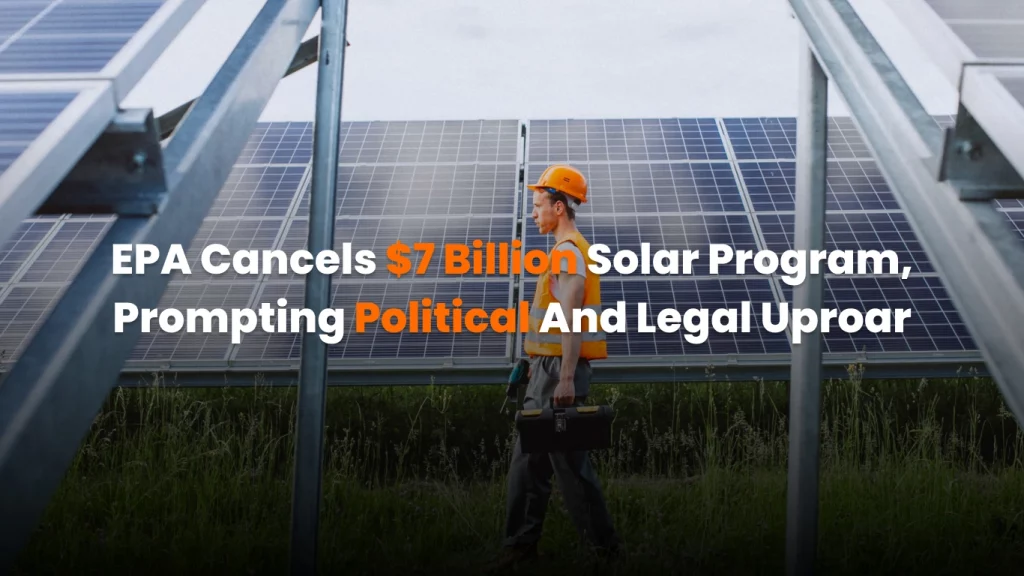The U.S. Environmental Protection Agency (EPA) has formally terminated the $7 billion Solar for All initiative, a signature clean energy program from the Biden administration designed to help more than 900,000 low-income households install rooftop and community solar systems as part of the broader solar program, according to Reuters.
EPA Administrator Lee Zeldin announced the decision this week, framing it as part of the Trump administration’s broader shift away from federally funded renewable energy programs and toward expanded fossil fuel development. Zeldin said the cancellation was required under a recently enacted tax-and-spending measure signed by President Trump, which he argued removed the agency’s legal authority to operate both Solar for All and the larger Greenhouse Gas Reduction Fund.
“The program was a boondoggle and a waste of taxpayer dollars,” Zeldin said, citing what he described as inefficiencies and limited progress. According to EPA records, only $53 million of the allocated $7 billion had been spent to date, with many awarded projects still in the early planning stages.
The Future of the Solar Program
This cancellation raises concerns about the future of similar initiatives aimed at expanding access to renewable energy through the solar program.
The funding originated in the 2022 Inflation Reduction Act and was distributed to 60 recipients, including state governments, tribal nations, and regional authorities. The grants were intended to lower household utility costs, create clean energy jobs, and accelerate the nation’s shift toward renewable power generation.
The cancellation has sparked immediate and intense backlash from lawmakers, environmental advocates, and industry groups. Senator Bernie Sanders (I–Vt.), a vocal supporter of the program, denounced the move as “illegal” and accused the administration of undermining national efforts to combat climate change. The Solar Energy Industries Association (SEIA) issued a statement arguing that the EPA lacks the legal authority to rescind grants already appropriated by Congress.
Several states and advocacy groups are preparing legal challenges, with the Southern Environmental Law Center (SELC) confirming it will take the matter to court. Opponents of the decision warn that halting the program could slow the pace of renewable energy adoption, raise electricity costs for vulnerable communities, and weaken the resilience of the nation’s electrical grid.
Senator Sheldon Whitehouse (D–R.I.) criticized the cancellation as “a betrayal” of public trust, alleging that the administration is prioritizing fossil fuel donors over the broader public interest.
Legal experts note that the ultimate fate of the program may be decided in federal court. While the administration maintains that Congress eliminated the EPA’s authority to administer the funding, critics argue that the grants were lawfully appropriated and cannot be revoked without legislative action.
The dispute over Solar for All underscores the sharply divergent energy policy priorities of the Biden and Trump administrations. It also signals a potential legal battle that could set precedent for how future federal clean energy programs are funded, implemented, and potentially dismantled.
For now, awarded funds are frozen pending further legal review, and the more than 900,000 households targeted for assistance remain in limbo.




